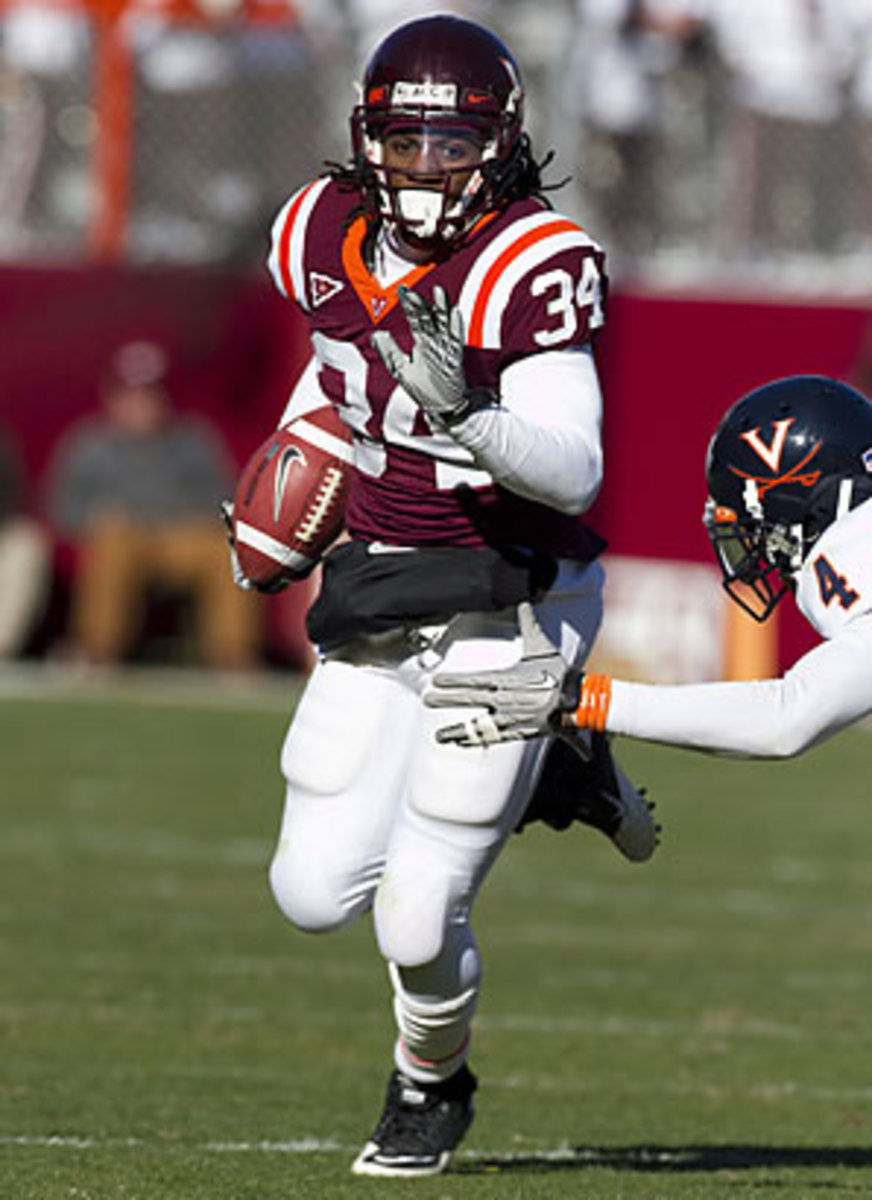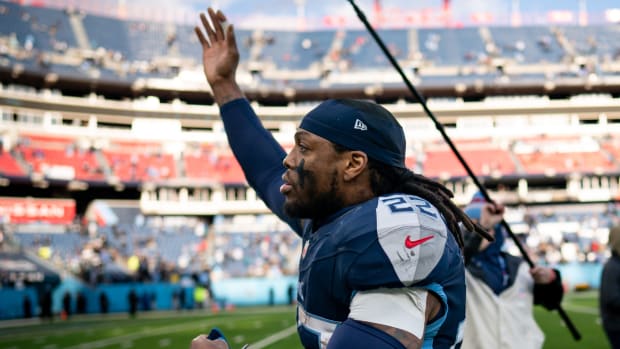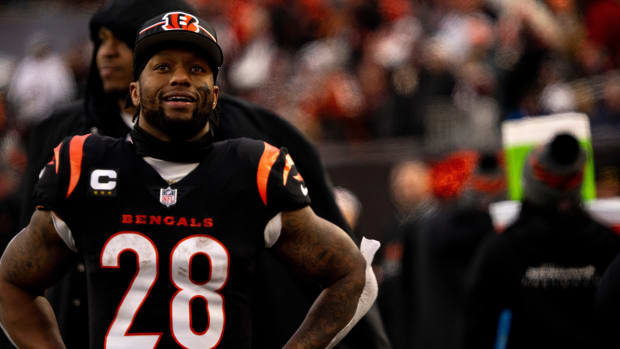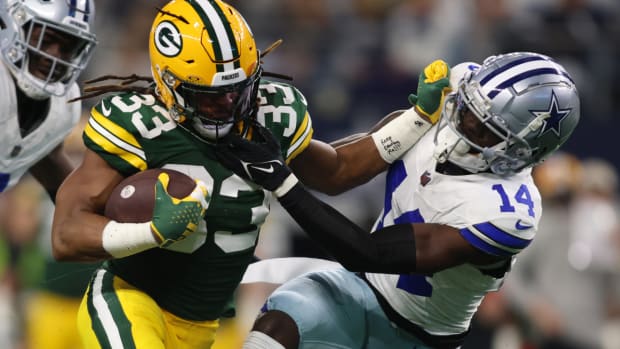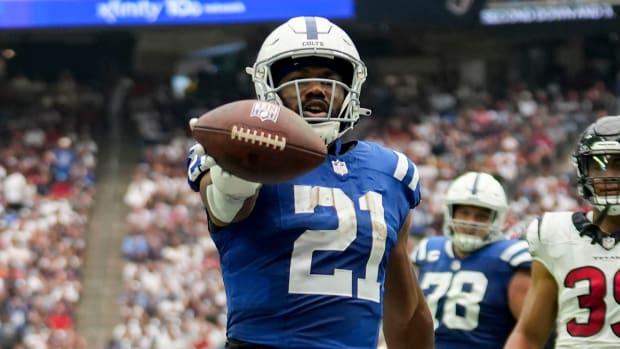NFL Rookie Watch: Ryan Williams
For years the Arizona Cardinals have tried to land an impact running back. Emmitt Smith was beyond his prime when he reached the desert; same was true of Edgerrin James. Marcel Shipp and J.J. Arrington had their moments, but both came and went without much fuss.
Now it's Ryan Williams' turn. And of all the backs Arizona has tried to make fit in the past few years, the Virginia Tech dazzler brings the most to the table.
Arizona used its second round choice (No. 38) to add the 21-year-old back to an already crowded backfield; Williams will battle Beanie Wells and Tim Hightower for carries. "It wasn't done with the idea of sending one of those guys a message," coach Ken Whisenhunt told the media. "I think it was done with the idea of 'this was a very good football player.'"
Whisenhunt admitted the team had Williams rated as its 15th-best prospect. Other teams viewed Williams much differently due to durability concerns and a few of his measurable qualities. To be specific, he stands just 5-foot-9 and scouts were turned off by his subpar 40 time at the NFL Combine (4.59). It's just a number, said Williams. "I think 40 speed and game speed are two different things," he told reporters. ACC defenders may agree. In less than two full seasons he tore up the league, and in 2009 set a conference single-season record for touchdowns (22). That year Williams also set a school record for rushing yards in a season (1,655). Now Williams hopes to bring a little bit of that electricity to the NFL.
Dissecting the depth chart: None of the returning backs on Arizona's roster appear capable of handling a full workload. Wells, the team's '09 first round pick, has averaged just 4.1 yards per carry in two seasons and has just one 100-yard effort to his credit. Hightower is still only 24, and has been far more productive than Wells, but in three seasons he has logged just one 20-carry game. Backups Jason Wright and LaRod Stephens-Howling saw limited action in '10. Williams has more burst than Wells or Hightower, and scouts believe he can help in the passing game (Cardinals backs combined for just 52 receptions last season).
Just the stats: During his two years in the lineup for the Hokies, Williams averaged 5.29 yards per carry. He gained 100 or more yards in 10 of 13 starts in '09, including a 183-yard, four-touchdown effort against in-state rival Virginia. Williams struggled with a hamstring injury for much of last season, which cost him four games. He was limited to an average of just nine carries over his final seven appearances, although he did gain 142 yards on 14 carries in a road win over Miami on Nov. 20. Virginia Tech did not utilize Williams in the passing game; he recorded just one game of three or more catches in 23 starts.
Projection for 2011: 140 carries, 650 rushing yards, 25 catches, 225 receiving yards, 6 TDs.
2010 rookie comparison: Ryan Mathews
Had injuries not nagged at Mathews during his '10 campaign who knows how well he could have performed for San Diego? As it was, Mathews began and ended the season with a 20-carry effort, with four missed starts in between. Mathews began to find his groove toward the end of the regular season, with five touchdowns in four December starts. Like Mathews, Williams' numbers will slowly build over the course of the year as his workload increases.
Interesting fact that won't help you: During his first formal scrimmage at Virginia Tech, Williams took his first handoff as a Hokie and raced 80 yards for a touchdown.
What he's worth: In time, Williams could be the standout running back from this draft class. He has an opportunity to play out of the gate, and Arizona's weapons in the passing game will prevent defenses from stacking against the running game. For now, though, fantasy owners will need to be patient. While Williams possesses more potential than perhaps any other rookie back (including Mark Ingram) it's most likely his progress will be slow. In a traditional 12-team league, Williams is a fringe No. 3 back, best suited to fill a No. 4 role.
Mike Beacom is a contributing writer for FootballDiehards.com.
































